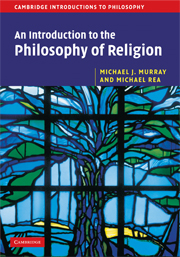Book contents
1 - Attributes of God: independence, goodness, and power
Published online by Cambridge University Press: 05 June 2012
Summary
In the preface, we explained and defended our decision to focus our attention in this book primarily on the Western monotheistic religious traditions. Those traditions claim, in some rough sense, to share a common concept of God; and one of the most important enterprises in theistic philosophy of religion has been the task of analyzing that concept and exploring some of its more puzzling and problematic aspects. In this and the following two chapters we too shall take up this task, paying special attention to those attributes of God that have traditionally been regarded as most important and of the greatest philosophical interest.
Before turning to our discussion of the attributes of God, it will be helpful first to say a few words both about what we mean when we talk about “the” concept of God and about how we might go about unpacking that concept.
The concept of God
Theologians in the Western tradition have characterized “the concept of God” in a variety of different ways. For some, the concept of God is just the concept of the ultimate reality, or the source and ground of all else; for others it is the concept of a maximally perfect being. Still others would say that to be God is to be the one and only being worthy of worship, so that analyzing the concept of God would involve coming to a full understanding of worship-worthiness.
- Type
- Chapter
- Information
- An Introduction to the Philosophy of Religion , pp. 3 - 34Publisher: Cambridge University PressPrint publication year: 2008



